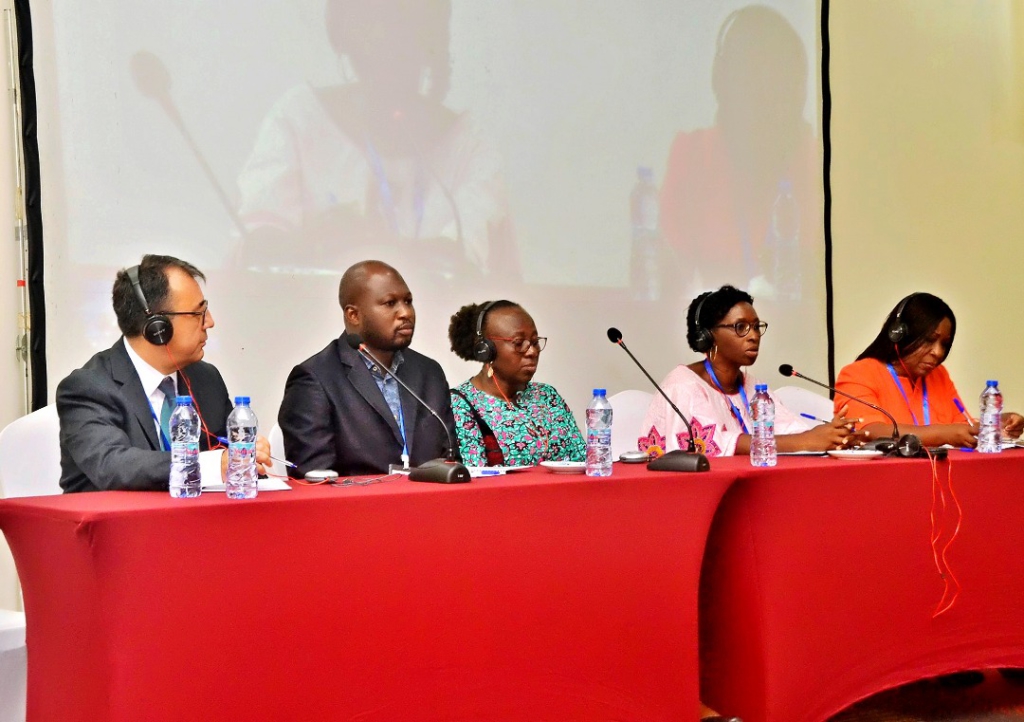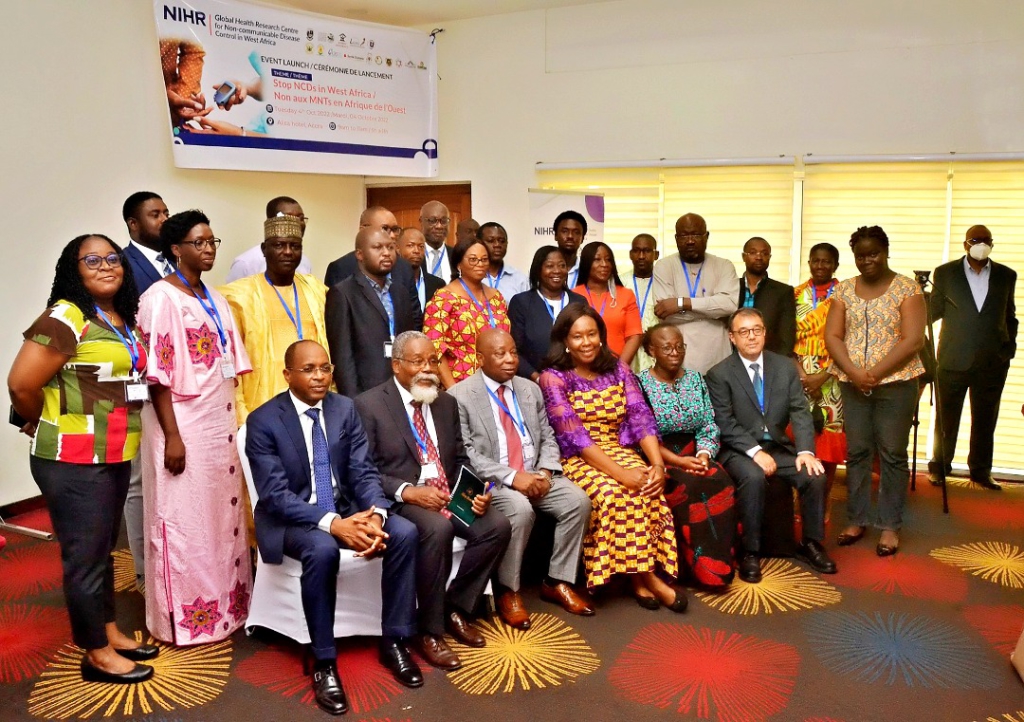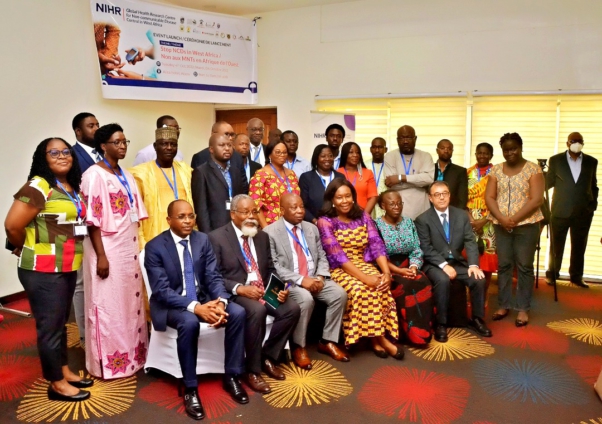The National Institute for Health and Care Research (NIHR), United Kingdom (UK) and the Department of Health and Social Care, UK, have scaled up efforts to combat Non-Communicable Diseases (NCDs) with approximately £10 million in funding for NCD research in Ghana, Burkina Faso and Niger.
NIHR, an institution at the forefront of tackling health issues, will provide support for the establishment of a Global Health Research Centre for Non-Communicable Disease control in West Africa to address the scourge of NCDs over a five-year period.
The centre will also develop the skills of local researchers and clinicians and will run a PhD and master’s programme to provide formal training for students in all three countries.
The centre will comprise the Ghana College of Physicians and Surgeons (GCPS) and the London School of Hygiene and Tropical Medicine (LSHTM) as the co-lead institutions working in partnership with other institutions, namely Ashesi University, Ghana; Catholic University of West Africa (UCAO-UUB), Burkina Faso and Laboratoire d’Etudes et de Recherche sur les Dynamiques Sociales et le Développement Local (LASDEL), Niger.
Dr Sylvia Anie at National Institute for Health and Care Research, UK, commented, “NIHR Global Health Research Centres will provide a sustainable platform for high-quality applied health research in low-and low middle-income countries (LMIC) to address the burden of NCDs and improve health outcomes. It is time to shift the centre of gravity to LMIC-led research.”

NCDs, also known as chronic diseases, are not passed from person to person. They include heart disease, stroke, cancer, diabetes and chronic lung disease.
Across the world, NCDs kill 41 million people yearly, equivalent to 74% of all deaths globally.
A report by WHO in April 2022 highlighted the alarming rate of deaths from NCDs in Africa, and the NCDs are increasingly becoming the main cause of mortality in sub-Saharan Africa, where the diseases were responsible for 37% of deaths in 2019, rising from 24% in 2000.
This project aims to improve the health and well-being of populations by developing the capacity for high-quality research to inform improved prevention, diagnosis, and treatment of inter-connected NCDs (hypertension, diabetes and co-existing stress, anxiety, and depression).
President of the International Union of Immunological Societies and Chair of the NIHR Global Health Research Centres Funding Committee, Professor Faith Osier, said “these new centres are truly ground-breaking - it’s the first time we’ve seen anything like this level of investment in non-communicable disease research in low and middle-income countries. The potential for this truly equitable partnership working between researchers in LMICs and in the UK is immense and we’re so excited to see the advances that the next five years will bring.”

On her part, the Director for NIHR Global Health Research Centres West Africa, Prof. Irene A. Agyepong welcomed the project and said the centre will make a difference in addressing challenges of non-communicable diseases.
“The fifteen countries of ECOWAS, like most LMICs, are increasingly challenged by rising illness and deaths related to NCDs.
“This is additional to their long-standing challenges from communicable diseases such as malaria and tuberculosis. Research is at the heart of the innovation needed to address these problems, and establishing the centre is a timely and welcome effort to make a difference”.
Co-Director for NIHR Global Health Research Centres West Africa, Professor Tolib Mirzoev said the project will go a long way to improve the control of non-communicable diseases.
“I am delighted to jointly lead the Stop-NCD programme together with Professor Agyepong from the GCPS. Our programme addresses an important and urgent need for high-quality research to improve the control of NCDs in West Africa.
“Through excellent science, comprehensive capacity strengthening and equitable partnerships involving research teams and key stakeholders, we will ensure the longer-term legacy of African-led research for improved policy and practice in NCD control.”
The official announcement and launch of the project was held in Accra, Ghana, on Wednesday, October 4 with the Minister of Health, Kwaku Agyemang-Manu as the special guest of honour.
Also present were the representative of the Minister of Health for Niger, M. Sabo Hassane Adamou, Deputy Secretary General and the representative of the Minister of Health for Burkina Faso, Baperman Abdel Aziz Siri.
Scientists, researchers and officials in the health sector from the UK and various West African implementing countries were present in Accra to grace the occasion.
Latest Stories
-
Congo, M23 rebels plan return to Qatar talks amid Trump pressure
2 hours -
US, Colombia recall their ambassadors in diplomatic tussle
2 hours -
‘It’s a joke’: Peruvians outraged after president doubles her salary
2 hours -
Putin tells Trump he won’t back down from goals in Ukraine, Kremlin says
2 hours -
Boxer Julio Cesar Chavez Jr arrested by US immigration
3 hours -
Over 100 former senior officials warn against planned staff cuts at US State Department
3 hours -
Dagbang overlord bans celebration of 2025 fire festival in Tamale
3 hours -
BBC senior staff told to ‘step back’ from duties following row
3 hours -
North Tongu DCE urges trust in gov’t as flood victims awaits compensation
3 hours -
2 arrested for murder of Lebanese national in East Legon
3 hours -
NSMQ 2025: GSTS clinch Western Regional Championship to book spot at national
3 hours -
New Supreme Court judges pledge fairness, acknowledge family support
3 hours -
Kilmar Ábrego García alleges torture and abuse in El Salvador prison
3 hours -
Gov’t sets up committee to investigate sale of state lands, including those owned by schools
4 hours -
Angélique Kidjo first black African to get Hollywood Walk of Fame star
4 hours

